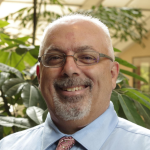Uncategorized
How Much Transition Did Orlando City Need This Off-Season?
Yesterday, Orlando Sentinel columnist Mike Bianchi dropped a piece heavily quoting Orlando City Founder and President Phil Rawlins, who spoke at length to squash the conspiracy theories floating around about Flavio Augusto da Silva changing the way the front office operates. Essentially, the article makes the point that the club is in transition, not turmoil.
"We went into our first season and said very clearly that our goal was to make the playoffs," Rawlins said. "A lot of people thought was just crazy talk, but that was our belief and vision. We're accustomed to making the playoffs and winning championships. We did it in the minors and we wanted to maintain that same level and make a mark in our first year in MLS.
"We had a good first season, but we didn't meet our goals. We want to insure that we build upon that first season and are more successful in 2016."
By all accounts, Orlando City had quite a successful inaugural MLS season. The team entered the final weekend with a shot at a playoff spot despite an ungodly number of man-games lost to injury, a head coach experiencing his first go-round in Major League Soccer, and (as Paul Tenorio points out) having 11 roster players under the age of 21.
My question isn’t whether the team is in turmoil, because I’m one of those who never really believed that. My question is whether the team should even be in transition. Orlando City would have made the playoffs had the team simply been able to stay a tad healthier. Sure, depth was an issue, as it is everywhere in MLS, and especially among expansion teams. No one could have predicted such a rash of injuries. I submit that if Brek Shea had missed two fewer weeks, Orlando City could have earned enough points to make the postseason.
The goal was to make the playoffs, and that didn't quite happen, but I think you can point to extenuating circumstances in this case. Some change is always necessary, but staying the course may have provided the desired result.
So why change much? The team was on the right trajectory. A few depth additions or an additional Designated Player at a key position and simply having better injury luck in Year 2 could have been enough to get Orlando City where it wants to go. Was there really any need to demote Paul McDonough by adding the recently departed Armando Carneiro? Will a replacement for Ian Fuller or a change at goalkeeper be the difference?
I get the reasoning behind all of those moves and I don't necessarily disagree with any of them. Still, continuity in sports can be a good thing. Thankfully, City kept the majority of its roster intact and is wisely giving Adrian Heath a chance to continue building his team.
If Earl Edwards Jr. is the goalkeeper the staff believes he is, Hall’s departure may not be felt. But goalkeeping is much more than stopping shots. Tally Hall organized his back line much more efficiently than Donovan Ricketts ever did for the Lions. Did Edwards learn that from Hall during their time together?
Fuller can be replaced with a much more experienced (in MLS) assistant, upgrading that position. Carneiro is gone, so we'll never know what kind of academy he would have built or how good/bad of a GM he'd have made. But if the club is patient and finds the right man, they may do as well or better than the very capable McDonough.
The next steps for Orlando City, in addition to starting the GM/Chief Soccer Officer search, is to fill out the roster with upgrades from the 2015 squad, round out the developmental Orlando City B team, and get Orlando Pride ready for its inaugural NWSL season. Rawlins will work with Heath, Anthony Pulis, and Tom Sermanni to get that done, and the coaches will likely have a lot of say in buying the groceries for the meals they'll be cooking.
Every off-season has transition, as Rawlins said in the Bianchi article. But in my opinion, this didn't need to be an off-season with too much transition.
